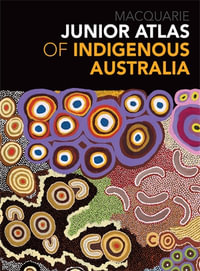How did eighteenth-century travellers experience, describe and represent the urban environments they encountered as they made the Grand Tour? This fascinating book focuses on the changing responses of the British to the cities of Florence, Rome, Naples and Venice, during a period of unprecedented urbanisation at home. Drawing on a wide range of unpublished material, including travel accounts written by women, Rosemary Sweet explores how travel literature helped to create and perpetuate the image of a city; what the different meanings and imaginative associations attached to these cities were; and how the contrasting descriptions of each of these cities reflected the travellers' own attitudes to urbanism. More broadly, the book explores the construction and performance of personal, gender and national identities, and the shift in cultural values away from neo-classicism towards medievalism and the gothic, which is central to our understanding of eighteenth-century culture and the transition to modernity.
Industry Reviews
'No-one has mined the wealth of English travel writing in Italy from the late seventeenth century to the early nineteenth century more assiduously or imaginatively than Rosemary Sweet. Her elegant, wide-ranging and compelling book develops a forceful critique of recent scholarship on the cultural and social histories of the Grand Tour, while at the same time skilfully demonstrating how the reactions of English men and women to the great cities of Italy reflected much wider changes in perceptions of national, social, gender and cultural identities, of the self and the modern. A must for specialists and sheer delight for everyone else.' John A. Davis, University of Connecticut
'Sweet's book gathers together an extraordinary range of published and unpublished sources, stretching beyond the traditional chronological boundaries of the Grand Tour, to offer the fullest account of the experience of British travellers to Italy. This is a sensitive and comprehensive account of a highly significant cultural phenomenon in modern British cultural history.' Melissa Calaresu, University of Cambridge
'However true Jane Austen's observation that 'we do not look in great cities for our best morality', Rosemary Sweet's engaging analysis demonstrates that travelers discovered great lessons of history in urban centers. Exploring Italian cities through the experiences of Grand Tourists, Sweet exposes new narratives of classical republics, medieval Gothicism, and Renaissance reclamation that gave urban history its early cultural capital.' Brian Dolan, University of California, San Francisco








![Collins Italian Dictionary and Grammar : 120,000 Translations Plus Grammar Tips [Fourth Edition] - Collins Dictionaries](https://www.booktopia.com.au/covers/200/9780008241407/6207/collins-italian-dictionary-and-grammar.jpg)
![Collins World Atlas : Paperback Edition [13th Edition] - Collins Maps](https://www.booktopia.com.au/covers/200/9780008320416/6208/collins-world-atlas.jpg)
![Collins Easy Learning Italian Conversation [2nd Edition] : Collins Easy Learning Italian - Collins Dictionaries](https://www.booktopia.com.au/covers/200/9780008111991/5905/collins-easy-learning-italian-conversation-2nd-edition-.jpg)








![Collins World Atlas : Reference Edition [Fifth Edition] - Collins Maps](https://www.booktopia.com.au/covers/200/9780008436155/6208/collins-world-atlas.jpg)





